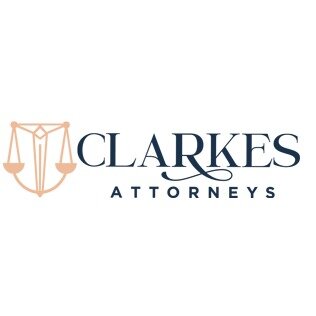Best Discrimination Lawyers in Lilongwe
Share your needs with us, get contacted by law firms.
Free. Takes 2 min.
List of the best lawyers in Lilongwe, Malawi
About Discrimination Law in Lilongwe, Malawi
Discrimination law in Lilongwe, Malawi, seeks to combat unfair treatment based on various attributes such as race, gender, age, disability, or sexual orientation. While Malawi is a nation committed to human rights, there are challenges in enforcement and awareness. The national constitution and specific laws like the Employment Act and Gender Equality Act guide legal frameworks to prevent and address discrimination. These laws aim to ensure that all individuals receive equal opportunities and are protected from prejudice and bias.
Why You May Need a Lawyer
Seeking legal advice on discrimination can be crucial in several scenarios: you might be facing unfair treatment at work, experiencing bias in educational settings, or encountering discriminatory practices in accessing services. A lawyer can help you understand your rights, gather evidence, and represent you in legal proceedings. They are also instrumental in navigating complex legal arguments and ensuring that your voice is heard in environments where power dynamics may not be in your favor.
Local Laws Overview
In Lilongwe, several key legal provisions are significant in tackling discrimination:
- The Constitution of Malawi: Provides overarching protection against discrimination, emphasizing equality before the law.
- The Employment Act: Prohibits unfair discrimination in employment conditions and opportunities.
- The Gender Equality Act: Promotes the full realization of men's and women's rights and prohibits gender-based discrimination.
- The Disability Act: Supports the rights of people with disabilities, ensuring non-discrimination in services and opportunities.
Frequently Asked Questions
What constitutes discrimination in Malawi?
Discrimination occurs when someone is treated less favorably than another person because of characteristics like race, gender, age, or disability.
Is it illegal to discriminate in workplaces in Lilongwe?
Yes, it is illegal to discriminate in the workplace under the Employment Act, which mandates equal treatment and opportunities for all employees.
What should I do if I experience discrimination?
Document the incidents, gather evidence, and consider seeking legal advice to understand your rights and possible remedies.
Can I report discrimination anonymously?
While you can report discrimination to certain bodies anonymously, pursuing legal action usually requires identification for verifying claims.
How can a lawyer help me with a discrimination case?
A lawyer can analyze your case, advise on the legal channels available, assist with documentation, and represent you in any legal proceedings.
Are there time limits for bringing a discrimination case?
Yes, time limits apply. It's crucial to initiate proceedings as soon as possible to avoid the risk of your claim being barred by statute limitations.
What are potential outcomes of a discrimination case?
Possible outcomes may include compensation for damages, reinstatement in employment, or implementation of fair policies by the offender.
Is discrimination only a legal issue?
No, it is also a social issue that affects community harmony and personal dignity. Legal measures are part of broader strategies to foster equality.
Can foreign nationals bring discrimination claims in Malawi?
Yes, foreign nationals can bring claims if they face discrimination within Malawi's jurisdiction, subject to local laws and regulations.
What is positive discrimination, and is it allowed?
Positive discrimination, or affirmative action, involves measures to enhance opportunities for previously disadvantaged groups. It can be legally sanctioned under specific circumstances in Malawi to promote equality.
Additional Resources
For assistance on discrimination-related issues, consider contacting:
- The Malawi Human Rights Commission: An independent body promoting and protecting human rights in Malawi.
- The Ministry of Justice: Provides information and services related to legal frameworks and legislation.
- Local Non-Governmental Organizations (NGOs): Organizations like the Centre for Human Rights and Rehabilitation offer support and advocacy services.
Next Steps
If you need legal assistance with a discrimination issue, consider these steps:
- Contact a Lawyer: Reach out to a lawyer specializing in discrimination law to discuss your case confidentially.
- Gather Evidence: Compile all relevant documentation and evidence related to the discrimination you faced.
- File a Complaint: If advised, file a formal complaint with the relevant authority or body.
- Stay Informed: Keep up to date with any proceedings and maintain open communication with your lawyer.
Lawzana helps you find the best lawyers and law firms in Lilongwe through a curated and pre-screened list of qualified legal professionals. Our platform offers rankings and detailed profiles of attorneys and law firms, allowing you to compare based on practice areas, including Discrimination, experience, and client feedback.
Each profile includes a description of the firm's areas of practice, client reviews, team members and partners, year of establishment, spoken languages, office locations, contact information, social media presence, and any published articles or resources. Most firms on our platform speak English and are experienced in both local and international legal matters.
Get a quote from top-rated law firms in Lilongwe, Malawi — quickly, securely, and without unnecessary hassle.
Disclaimer:
The information provided on this page is for general informational purposes only and does not constitute legal advice. While we strive to ensure the accuracy and relevance of the content, legal information may change over time, and interpretations of the law can vary. You should always consult with a qualified legal professional for advice specific to your situation.
We disclaim all liability for actions taken or not taken based on the content of this page. If you believe any information is incorrect or outdated, please contact us, and we will review and update it where appropriate.










